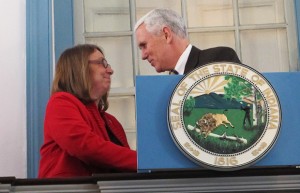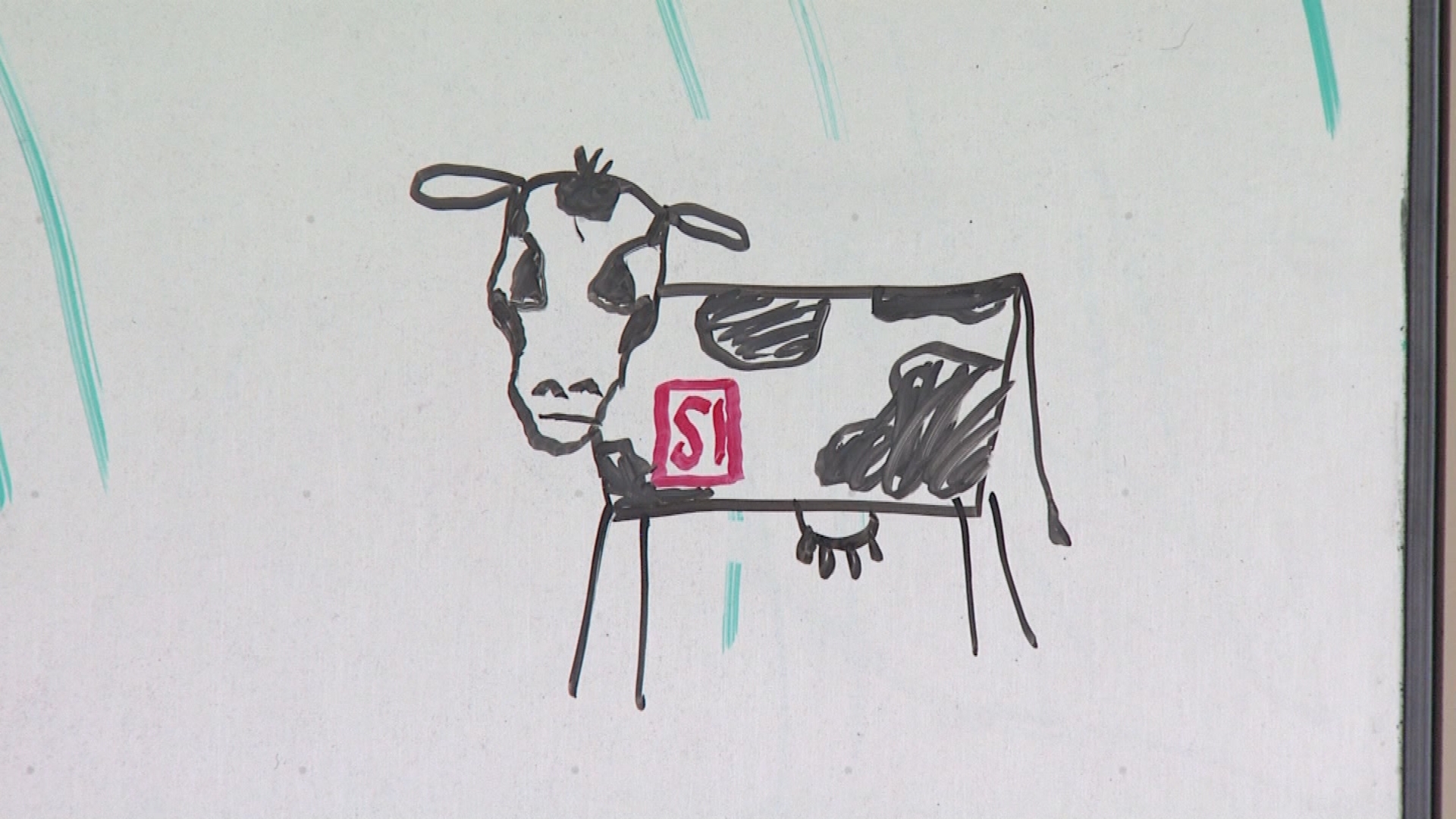As Tax Revenues Shrink, Indiana Leaders Weigh Schools’ Budgets With State’s Business Climate

Kyle Stokes / StateImpact Indiana
Rep. Rhonda Rhoads, R-Corydon, shakes Gov. Mike Pence's hand as he takes the podium for a speech at Indiana's first state capitol building.
Indiana’s property tax caps have proven fruitful for property owners, who would’ve paid an additional $704 million to local governments this year if it weren’t for the constitutionally-enshrined caps.
But property owners’ gain has also been Indiana schools’ loss — to the tune of $245 million in lost property tax revenues for districts across the state last year. (That’s up from $142 million lost to property tax caps in 2010.)
Against that backdrop, Gov. Mike Pence and top Republicans have aligned behind a proposal from the state’s business community to phase out a property tax on business equipment.
The details are still fuzzy, but without a replacement revenue source, the move would mean another hit of more than $500 million to local governments.
“I think it’s important to [phase out the business personal property tax] in a way that doesn’t disadvantage local communities or local schools,” Pence told reporters after outlining his education agenda this week. He added:
I’m confident we can do that. The reality is that we’re in a tough competition every day for jobs and for the kind of investment that will put Hoosiers back to work in this state. The fact that Illinois doesn’t have a business personal property tax, Ohio doesn’t have that tax, Michigan is phasing their tax out and Kentucky has a business personal property tax, but its much lower than ours. I think all argue in favor of focusing our next stage of tax reform on a plan to responsibly phase out the business personal property tax. I’m confident we can do that in a way that it won’t disadvantage our local communities or our schools, and I’m looking forward to working with legislators on the details.
As Purdue economist Larry DeBoer explains at Howey Politics Indiana, eliminating the nearly-$1 billion business personal property tax would shift tax burdens to other property owners. They would pay an additional $450 million in taxes, while local governments would still lose out on more than $500 million.
Of that sum, school districts across the state would see nearly $200 million in revenue losses, according to a memo presented to a state legislative committee in 2012.
Pence later told the The Times of Northwest Indiana there are multiple ways lawmakers could allow local governments to offset the losses. He didn’t rule out the option of raising county income taxes.
“We’ve heard some people talk about different scenarios where counties could consider doing that on an individualized basis,” Pence told Indiana Public Broadcasting’s Brandon Smith.
According to state finance data, two-thirds of the state’s school districts lost less than 5 percent of their property tax revenues to the caps last year.
On the other hand, 60 districts lost more than 10 percent of their property tax revenues last year. Four districts have lost more than half of their property tax revenues.
